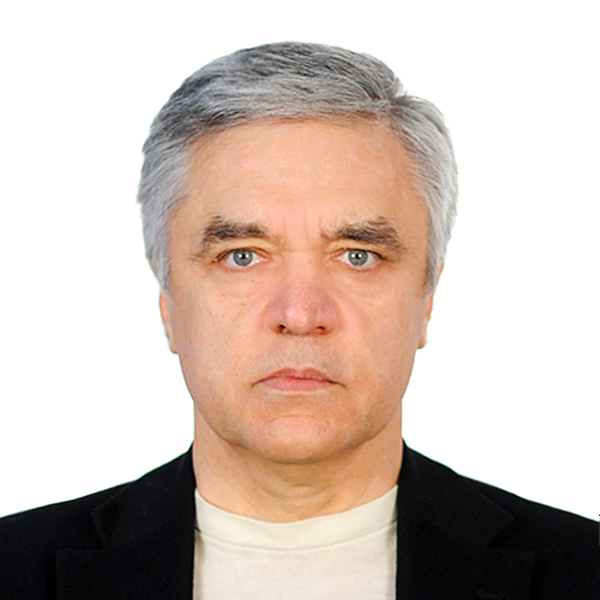Scientific Program

Sergey Suchkov
I M Sechenov First Moscow State Medical University, Russia
Biography:
S Suchkov graduated from Astrakhan State Medical University in 1980 and was awarded with MD. In 1985, he completed PhD from I M Sechenov Moscow Medical Academy and Ins tute of Medical Enzymology. In 2001, he completed his Doctor Degree at the Na onal Ins tute of Immunology, Russia. From 1989 to 1995, he was Head of the Lab of Clinical Immunology, Helmholtz Eye Research Ins tute in Moscow. From 1995 through 2004, he is a Chair of the Dept. for Clinical Immunology, Moscow Clinical Research Ins tute (MONIKI). In 1993-1996, he was a Secretary-in-Chief of the Editorial Board, Biomedical Science, an interna onal journal published jointly by the USSR Academy of Sciences and the Royal Society of Chemistry, UK. At present, he is Professor and Chair, Department for Personalized and Transla onal Medicine, I M Sechenov First Moscow State Medical University and Department of Clinical Immunology, A I Evdokimov Moscow State Medical and Dental University. He is a member of the Editorial Boards of Open Journal of Immunology, EPMAJ, American J of Cardiovascular Research and Personalized Medicine Universe. He was the Head of the Lab of Clin Immunol at Helmholtz Eye Res Inst in Moscow from 1989 to 1995. He was a Chair in the Dept. for Clin Immunol at Moscow Reg Clin Res Inst from 1995 to 2004. He has been trained at: NIH; Wills Eye Hospital, PA, USA; University of Florida in Gainesville; UCSF, S-F, CA, USA; Johns Hopkins University, Bal more, MD, USA. He was an Execu ve Secretary-in-Chief of the Editorial Board, Biomedical Science, an interna onal journal published jointly by the USSR Academy of Sciences and the Royal Society of Chemistry, UK. At present, he is a Director of the Center for Personalized Medicine, Sechenov University and Chair in the Dept. for Transla onal Medicine at Moscow Engineering Physical Ins tute (MEPhI), Russia. He is a member of New York Academy of Sciences, USA; American Chemical Society (ACS), USA; American Heart Associa on (AHA), USA; EPMA (European Associa on for Predic ve, Preven ve and Personalized Medicine), Brussels, EU; ARVO (American Associa on for Research in Vision and Ophthalmology); ISER (Interna onal Society for Eye Research); PMC (Personalized Medicine Coali on), Washington, USA.
Abstract
Abs against myelin basic protein (MBP), cardiac myosine (CM) and thyroid Ags (TPO, T3 and T4) endowing with proteoly c ac vity (Ab-proteases) are of great value to monitor chronic autoimmune infl amma on and to thus illustrate the evolu on of either of the above-men oned autoimmune disorders. Ab-proteases from MS, AIM and AIT pa ents exhibited speciï¬ c proteoly c cleavage of MBP, CM and thyroid Ags (T3, T3, TPO), respec vely The ac vity of the Ab-proteases markedly diff ers between: (i) the pa ents and healthy controls, and (ii) diff erent clinical courses, to to predict transforma on prior to changes of the clinical course. The ac vity of Ab-proteases was ï¬ rst registered at the subclinical stages 1-5 years (regardless to type of the disorder) prior to the clinical illness. Some (12-24%) of the direct disease-related rela ves are seroposi ve for low-ac ve Ab-proteases from which seroposi ve rela ves established
were being monitored for 2-3 years whilst demonstra ng a stable growth of the Ab-associated proteoly c ac vity. We saw also low-ac ve Ab-proteases in persons at MS-, AIM- and AIT-related risks (at the subclinical stages), and primary clinical, ultrasonic and MRT manifesta ons observed were coincided with the ac vity to have its mid-level reached. The ac vity of Ab-proteases would conï¬ rm a high subclinical and predic ve value of the transla onal tools as applicable for personalized monitoring protocols. Ab-proteases can be programmed and re-programmed to suit the needs of the body metabolism. Of tremendous value are Ab-proteases directly aff ec ng the physiologic remodeling of ssues with mul level architecture. Further studies on targeted Abmediated proteolysis may provide a supplementary tool for predic ng exacerba ons and thus the disability of the MS, AIM and AIT pa ents.
- Cell Therapy
- Cancer cell
- Gene Therapy
- Genetic Engineering.
- Bioprocess
- Allotransplantation
- Adoptive Cell Therapy
- Embryonic Stem Cell
- Cancer Immunotherapy
- Molecular biology
- pharmacology
- Stem Cell Therapy

